Commercial Forestry Mulching in Irvington, VA
Clear Land Without Destroying It
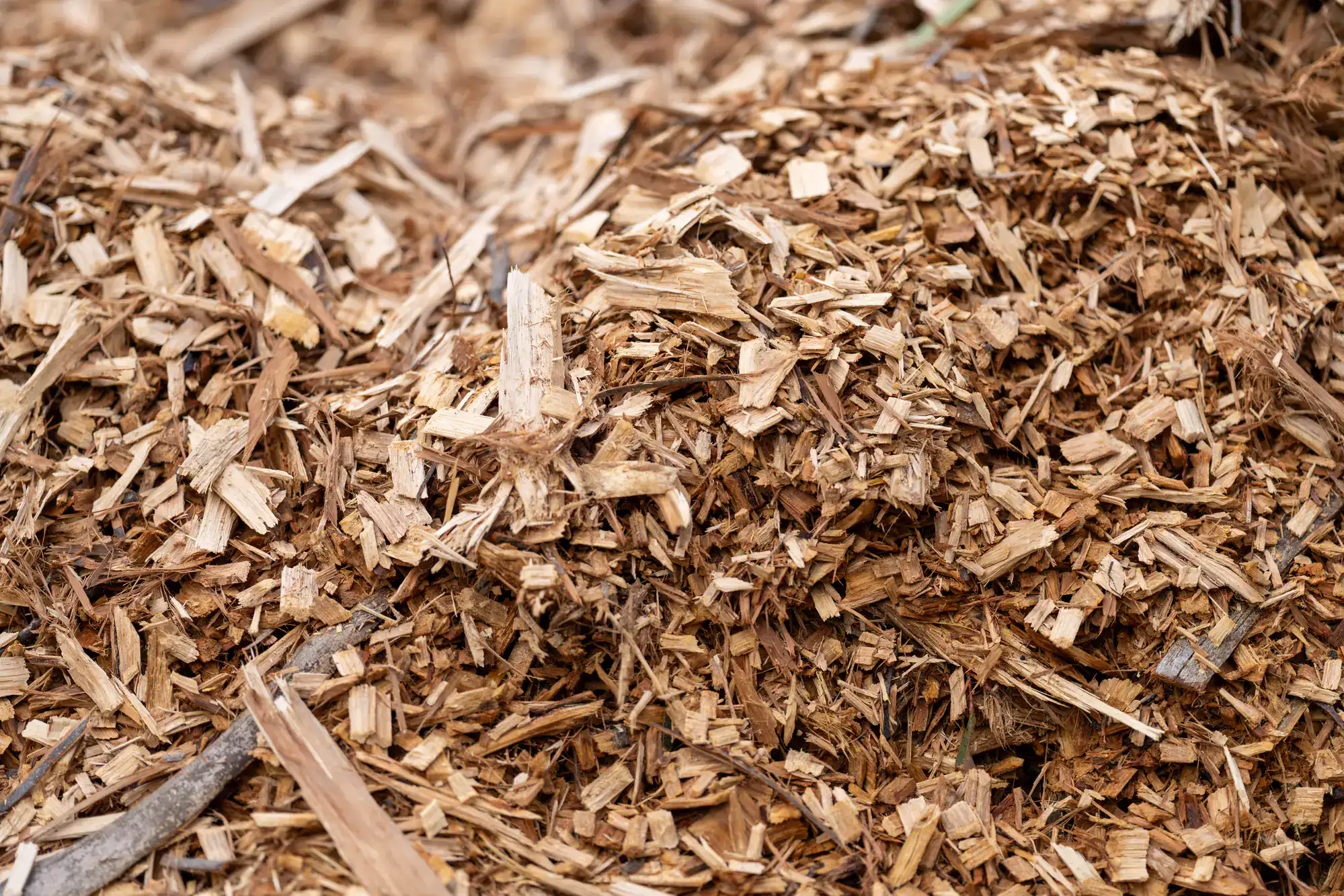
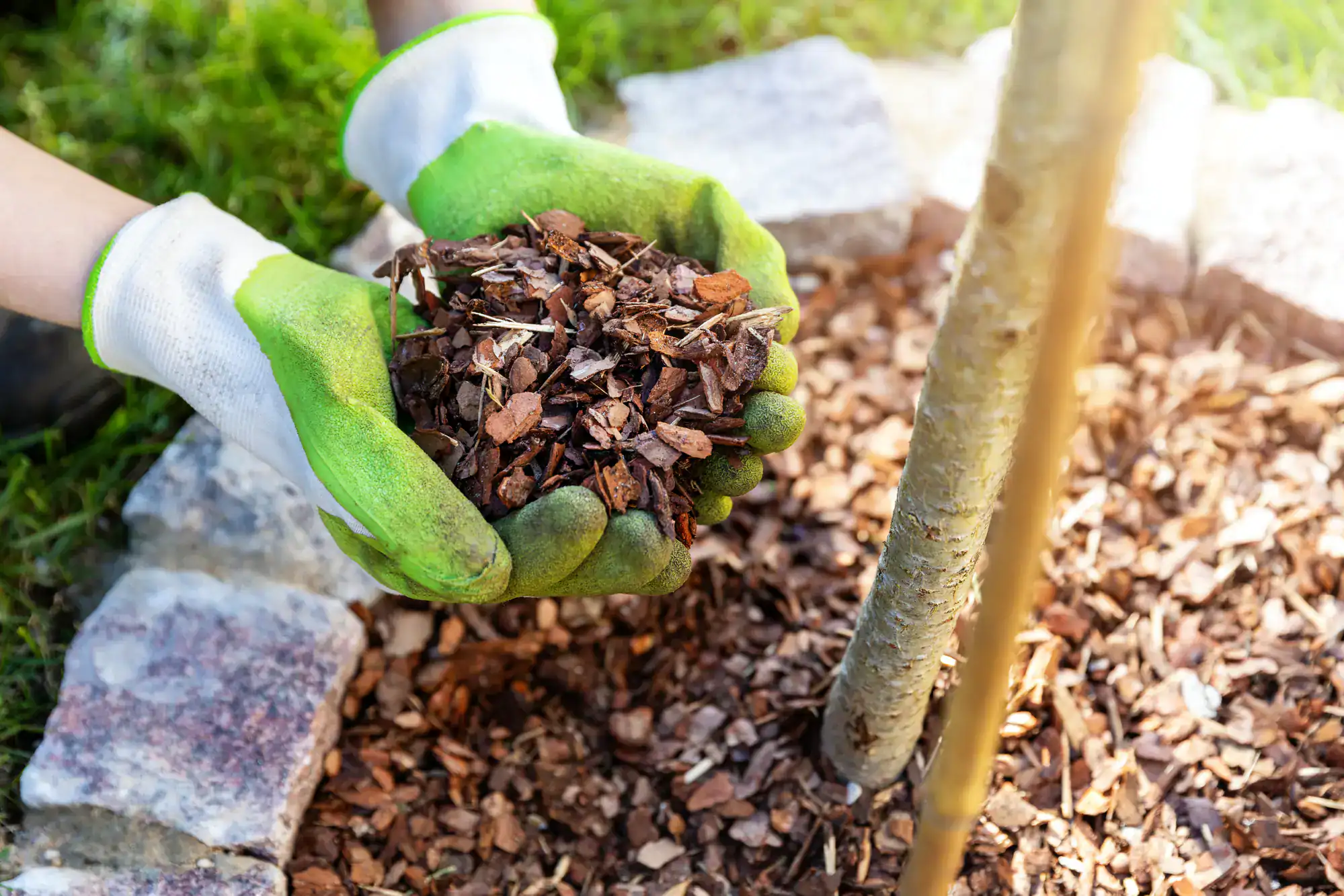
Land Clearing Services Irvington Virginia
You need that land cleared for your commercial project, but you’ve seen what traditional clearing does. Stripped topsoil. Compacted earth. Erosion problems that cost thousands to fix later.
Commercial forestry mulching works differently. Your trees and brush become nutrient-rich mulch that stays put, feeding the soil instead of getting hauled to a landfill. No permits for burning. No trucks hauling debris. No damaged ground that takes years to recover.
You get accessible, developable land that’s actually healthier than when you started. That’s not just better for the environment—it’s better for your bottom line.
Forestry Mulching Contractors Irvington VA
R.E. Douglas Company Inc has cleared hundreds of acres across Virginia’s Northern Neck region. We’re fully licensed and insured, but more importantly, we understand what works in this terrain.
Virginia’s clay soils, rolling hills, and mixed hardwood forests require equipment and expertise that many contractors simply don’t have. We’ve invested in purpose-built forestry mulchers—not converted skid steers—that handle the challenging conditions common in Lancaster County and surrounding areas.
Local commercial developers and property managers choose us because we deliver what we promise. Clean work. Fair pricing. Land that’s ready for whatever comes next.
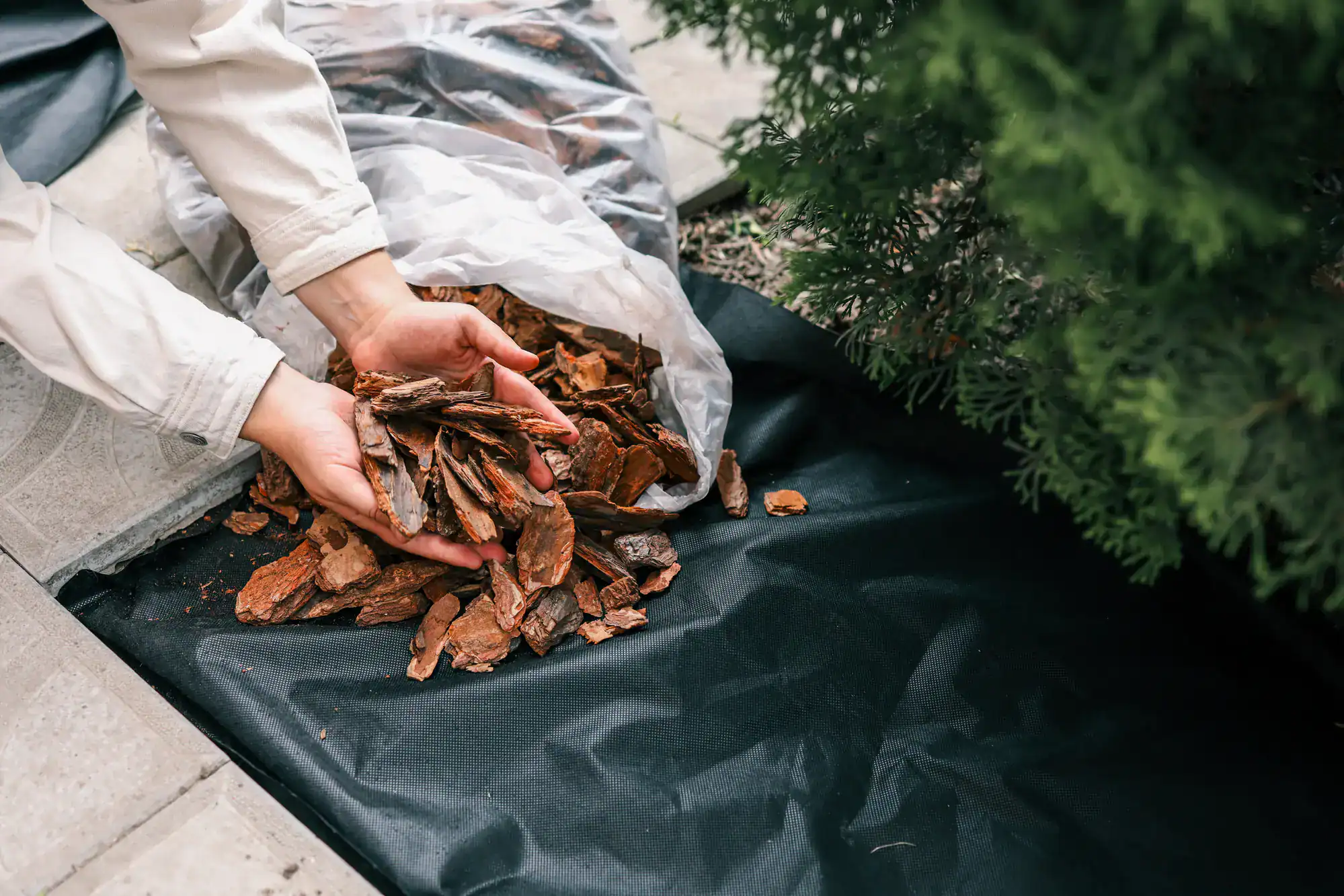
Mulching Equipment Process Virginia
Our forestry mulching process eliminates the complexity of traditional land clearing. One machine. One operator. One pass through your property.
We start by walking your site together, marking anything you want preserved. Our mulching equipment then systematically processes vegetation up to 8 inches in diameter, cutting and grinding everything into fine mulch in a single operation.
The mulched material spreads evenly as we work, creating immediate erosion control and soil amendment. No debris piles to haul. No burn permits to obtain. No follow-up crews needed. You get cleared land that’s ready for development while maintaining the soil structure that traditional methods destroy.
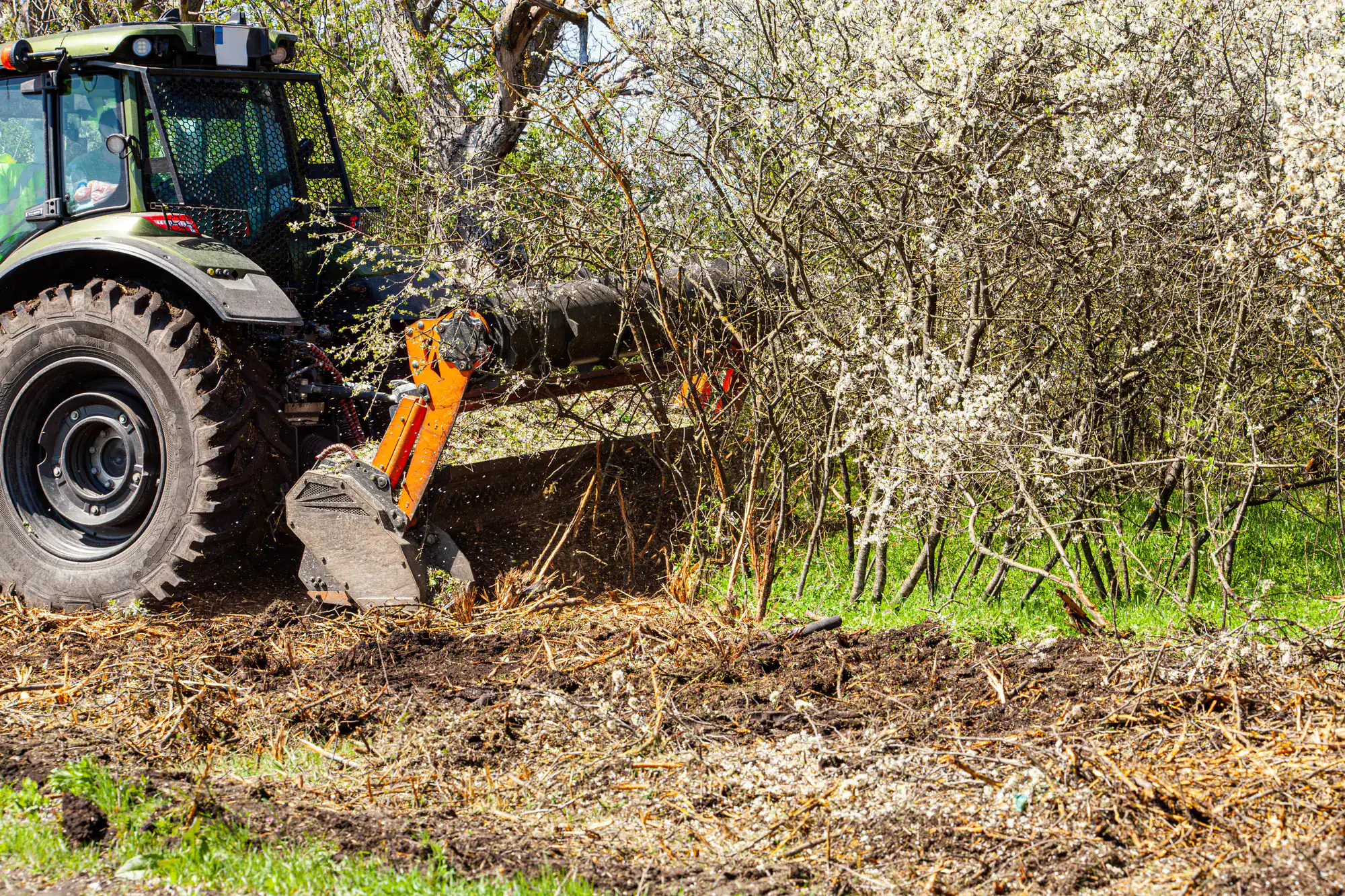
Ready to get started?
Land Management Solutions Irvington VA
Virginia’s terrain separates serious land clearing contractors from weekend warriors. Our high-horsepower forestry mulchers are built specifically for commercial land management—not adapted from other uses like many competitors’ equipment.
This means we clear multiple acres per day even in challenging conditions, producing cleaner mulch that looks professional and decomposes properly. The faster drum speeds and heavier construction handle Virginia’s tough hardwoods and dense understory that lighter equipment struggles with.
For Irvington’s commercial projects—pipeline maintenance, site preparation for the area’s growing development, or vegetation management around Northern Neck estates—this translates to shorter timelines and better results. You get the job done right the first time, without the callbacks and touch-ups that inferior equipment requires.
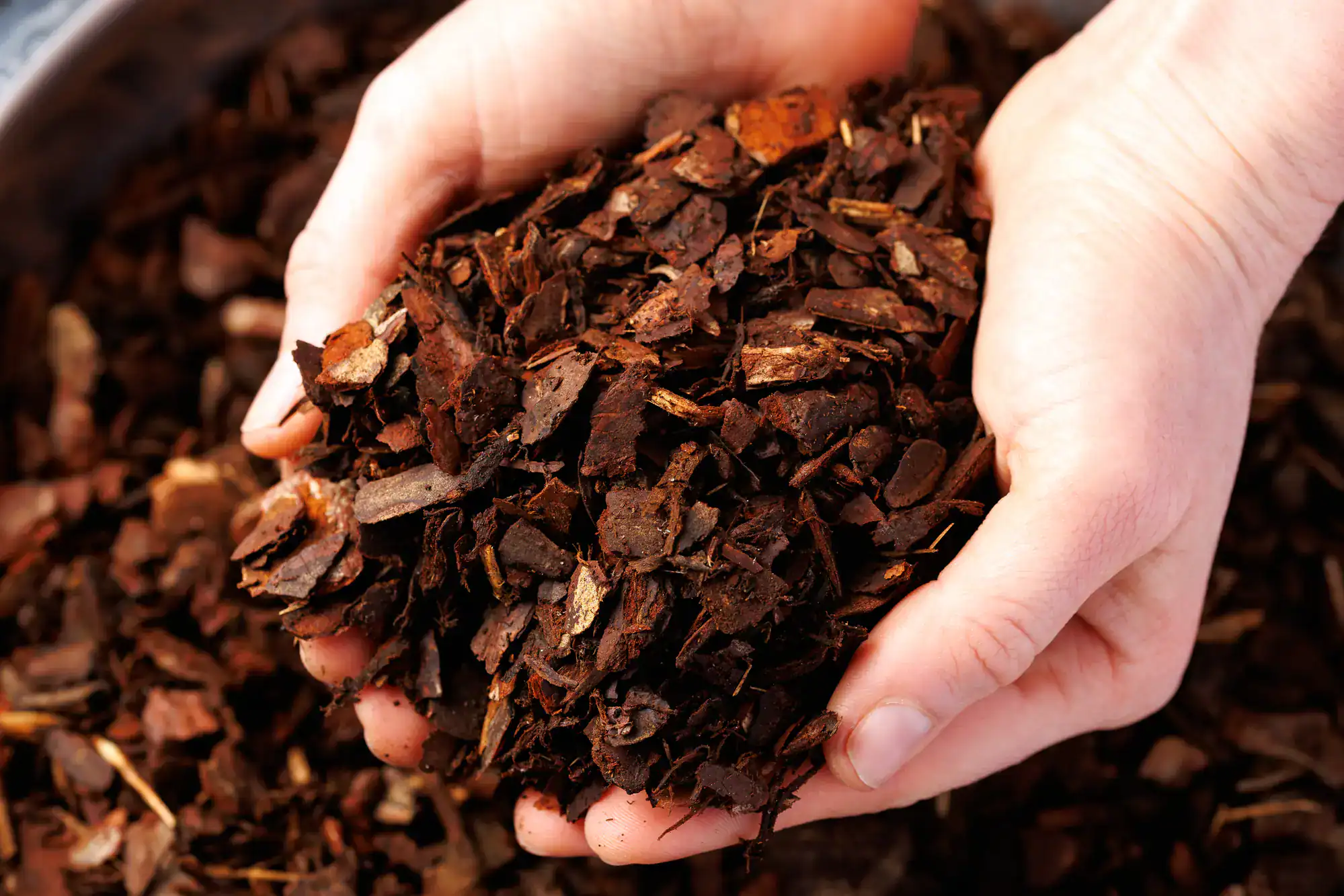
What size commercial properties can your forestry mulching equipment handle?
Our commercial forestry mulching equipment handles projects from half-acre lots to multi-hundred-acre developments. Size matters less than vegetation density and terrain accessibility.
For typical Irvington commercial applications—construction site prep, right-of-way clearing, estate management—we typically clear 1-3 acres per day depending on how thick the vegetation is. Flat ground with smaller trees and brush moves faster than hilly terrain with mature hardwoods.
We regularly handle pipeline corridor maintenance throughout the Northern Neck, large residential estate clearing, and commercial site preparation. The key is matching our equipment to your specific conditions. Dense cedar thickets require different approaches than scattered hardwoods, and we adjust our methods accordingly to deliver the results you need.
How do forestry mulching costs compare to traditional land clearing methods?
Commercial forestry mulching typically costs less than traditional clearing when you calculate the complete project expense. You eliminate debris hauling, disposal fees, burning permits, and soil restoration—costs that add up quickly with conventional methods.
Current rates in Virginia run $1,000-$2,500 per acre depending on vegetation density and terrain difficulty. Traditional clearing often exceeds this once you factor in hauling costs, disposal fees, and the soil amendments needed to repair bulldozer damage.
More importantly, forestry mulching keeps your project on schedule. No waiting for hauling trucks. No weather delays for burning permits. No soil restoration phase before you can proceed with development. You get cleared, developable land in one operation, which often saves more money in timeline compression than the direct cost savings.
What permits do commercial forestry mulching projects require in Virginia?
Forestry mulching typically requires fewer permits than traditional clearing because it doesn’t disturb soil structure or remove material from the site. Most jurisdictions classify it as vegetation management rather than land disturbance.
However, commercial projects still need compliance with local regulations. Work near wetlands, streams, or protected areas common in the Northern Neck region may require additional permits. Projects over certain acreages might need erosion and sediment control plans, though the mulch itself provides excellent erosion control.
We work directly with Lancaster County and state authorities to ensure your project meets all requirements. Our experience with Virginia’s environmental regulations helps identify potential permit needs early, keeping your project on schedule and compliant with all applicable rules.
Can forestry mulching work safely around existing utilities and buildings?
Forestry mulching excels at precision work around existing infrastructure. Our equipment operates in tight spaces and along property lines where bulldozers and excavators can’t safely work, making it ideal for right-of-way maintenance and vegetation control near buildings.
We coordinate with utility companies for proper underground line marking before any commercial project. Our operators adjust cutting depths and working patterns to avoid interference with buried utilities while maintaining safe distances from structures and fences.
This precision capability is especially valuable in developed areas like Irvington where properties often have complex utility layouts and established landscaping worth preserving. We can clear overgrown areas right up to building foundations or fence lines without the collateral damage that heavy clearing equipment typically causes.
How long does forestry mulch last and what happens as it decomposes?
Forestry mulch typically decomposes over 2-4 years, gradually improving soil quality as it breaks down. Decomposition rate depends on the vegetation types mulched, local climate, and soil conditions.
As the mulch decomposes, it adds organic matter to the soil, improves water retention, and provides slow-release nutrients for future vegetation. This creates healthier soil conditions that support desired plantings while suppressing unwanted regrowth.
For commercial applications, this timeline works perfectly. During construction phases, the mulch provides erosion control and dust suppression. For ongoing vegetation management, the decomposing mulch creates soil conditions that favor desired species over invasive plants. Many Northern Neck property managers appreciate this long-term soil improvement benefit that actually increases land value over time.
When is the best time for commercial forestry mulching in Virginia?
Commercial forestry mulching works year-round in Virginia, but timing affects project outcomes. Late fall through early spring (November-March) is often optimal for large projects because vegetation is dormant and ground conditions are more stable for heavy equipment.
Winter work minimizes wildlife disruption during nesting seasons and provides better visibility through bare branches for identifying property boundaries and features to preserve. However, wet conditions can limit access to some areas.
Spring and summer mulching takes advantage of active growing seasons for faster mulch decomposition and quicker soil integration. For time-sensitive commercial projects in the Irvington area, we can work effectively in any season by adjusting our equipment and methods to current conditions. The key is proper planning and realistic scheduling based on your specific site and timeline requirements.
Other Services we provide in Irvington
